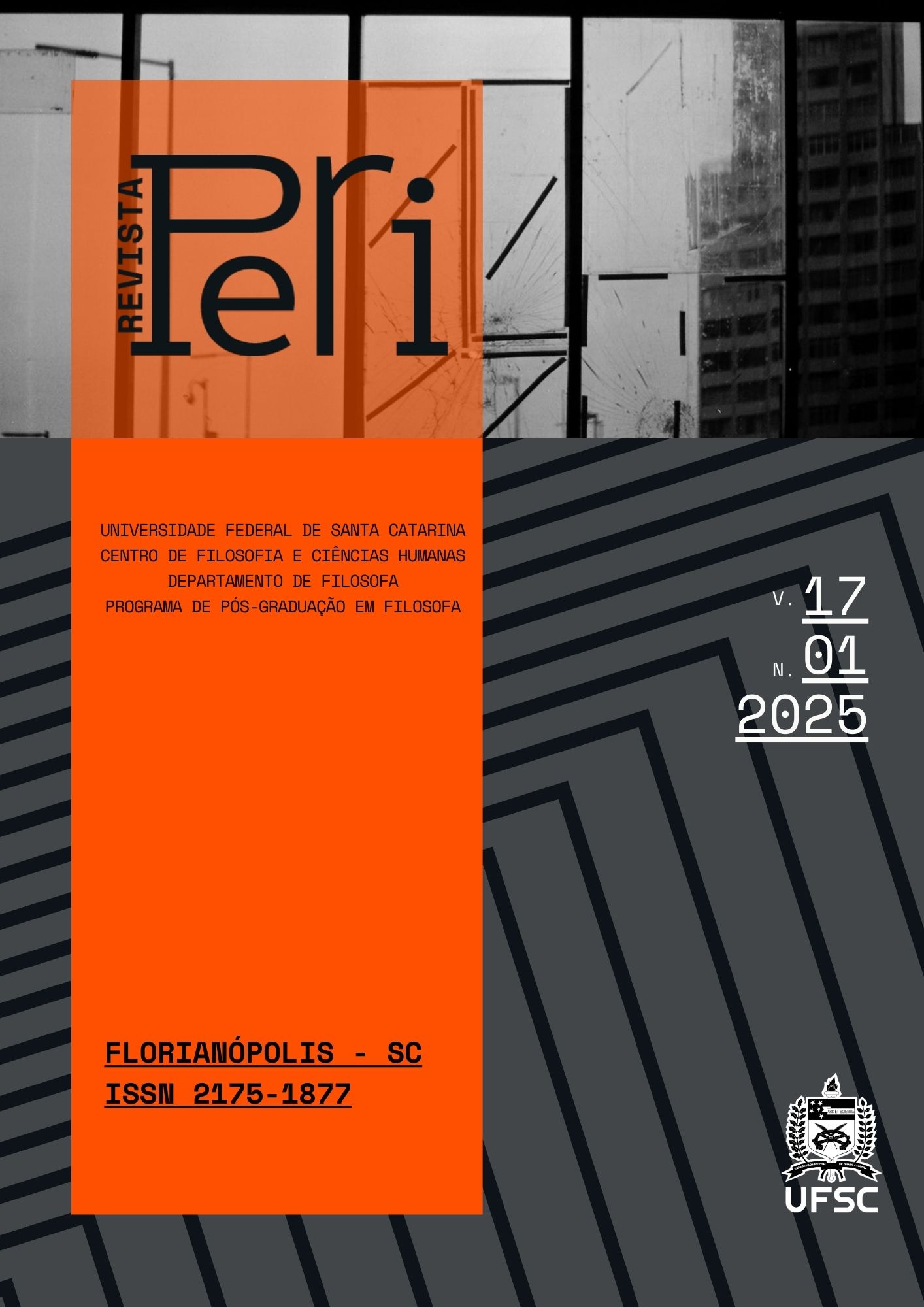Social Rights And Emancipation:
An Analysis Of The Potential Of Social Rights In The Transformation Of The Sociability
Keywords:
direitos sociais, emancipação, Karl MarxAbstract
This article explores the relation between the concept of emancipation and the potential of social rights for the emancipatory process, aiming to contribute to contemporary debates on rights and freedom within a socialist perspective. The research employs a bibliographic review to analyze the disruptive potential of social rights against the capitalist order and their role in promoting an integrative society based on solidarity. Departing from the theme of rights in the writings of the young Marx, as well as subsequent interpretations by contemporary theorists in law and philosophy who have used Marx's texts to reflect on the evolving concept of emancipation within the Marxian framework, this article investigates to what extent social rights are capable of granting materiality to this concept, thus overcoming the disintegrative tendency of civil society. Therefore, the study highlighted the relevance of this category of rights to the process of recognizing the complementary dimension of needs which is presupposed in the notion of emancipation, indicating the necessity of interpreting them beyond the semantics of subjective rights.
References
ATRIA, Fernando. Existem direitos sociais?. In: Revista do Ministério Público do Rio Grande do Sul, Porto Alegre, v. 1, n. 56, p. 09-48, 2005.
_______. Social rights, social contract, socialism. Social & Legal Studies, v. 24, n. 4, p. 598-613, 2015. DOI: 10.1177/0964663915617860. Acesso em: 15 fev. 2024.
BUSCH, Hans-Christoph. How Do Rights Affect Our Freedom? On Some Differences Between Hegel and Marx – and Why They Shed Light on Honneth’s Social Philosophy. In: KANDIYALI, J. Reassessing Marx's Social and Political Philosophy: Freedom, Recognition and Human Flourishing. New York: Routledge, 2018, p. 102-119.
CARVALHO, José Murilo de. Cidadania no Brasil: o longo caminho. Rio de Janeiro: Civilização Brasileira, 2001.
DONZELOT, Jacques. L'invention du social: essai sur le déclin des passions politiques. Paris: Éditions du Seuil, 1994.
HONNETH, Axel. Luta por Reconhecimento: a gramática moral dos conflitos sociais. São Paulo: Editora 34, 2009.
_______. Freedom’s Right: The Social Foundations of Democratic Life. Cambridge: Polity Press, 2014.
_______. A ideia de socialismo. Lisboa: Edições 70, 2017.
MARSHALL, Thomas Humphrey. Citizenship and social class. In: MARSHALL, T. H.; BOTTOMORE, T. Citizenship and social class. Londres: Pluto Press, 1992.
MARX, K.; ENGELS, Friedrich. A Sagrada Família. São Paulo: Boitempo, 2003.
MARX, K. Sobre a questão judaica. São Paulo: Boitempo, [1843] 2010.
_______. Lutas de Classes na França de 1848 a 1850. São Paulo: Boitempo, [1850] 2012.
_______. Excertos do livro de James Mill "Éléments d’économie politique". Cadernos de Filosofia Alemã: Crítica e Modernidade, v. 21, n. 1, p. 147-161, 2016. DOI: 10.11606/issn.2318-9800.v21i1p147-161. Acesso em: 17 jan. 2023.
MENKE, Christoph. “Democratic Citizenship and Subjective Rights: Marx’s Riddle”. In: BEAUD, O; COLLIOT-THÉLÈNE, C; KERVÉGAN, J-F. (Orgs.). Droits subjectifs et citoyenneté. Paris: Classiques Garnier, 2019. p. 97-107.
WALDRON, Jeremy. Liberal Rights: Collected Papers, 1981-1991. Cambridge: Cambridge University Press, 1993.
_______. ‘Nonsense Upon Splits’: Bentham, Burke and Marx on the Rights of Man. Londres: Methuen & Co, 1987.
Downloads
Published
Issue
Section
License
Copyright (c) 2025 Valentina Moreira

This work is licensed under a Creative Commons Attribution-NonCommercial-ShareAlike 4.0 International License.
- Autores mantém os direitos autorais e concedem à revista o direito de primeira publicação, com o trabalho simultaneamente licenciado sob a Creative Commons Attribution License que permite o compartilhamento do trabalho com reconhecimento da autoria do trabalho e publicação inicial nesta revista.
- Autores têm autorização para assumir contratos adicionais separadamente, para distribuição não-exclusiva da versão do trabalho publicada nesta revista (ex.: publicar em repositório institucional ou como capítulo de livro), com reconhecimento de autoria e publicação inicial nesta revista.
- Autores têm permissão e são estimulados a publicar e distribuir seu trabalho online (ex.: em repositórios institucionais ou na sua página pessoal) a qualquer ponto antes ou durante o processo editorial, já que isso pode gerar alterações produtivas, bem como aumentar o impacto e a citação do trabalho publicado (Veja O Efeito do Acesso Livre).





